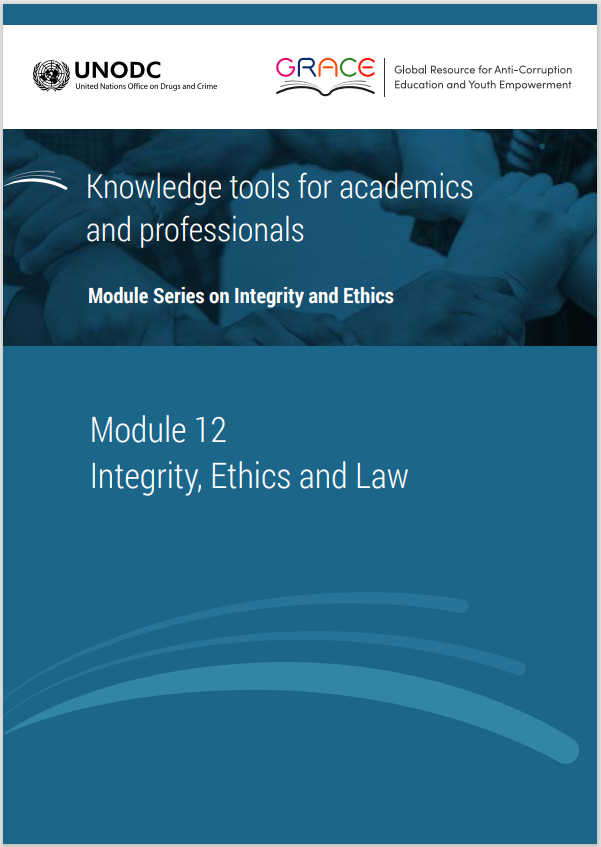This module is a resource for lecturers
Student assessment
This section provides a suggestion for a post-class assignment for the purpose of assessing student understanding of the Module. Suggestions for pre-class or in-class assignments are provided in the Exercises section.
One or more of the following assignments are proposed to be completed within two weeks after the Module. They contain varying degrees of experiential learning and can be adapted to suit student abilities.
-
Essay: Students analyse a case study that raises inter-related questions of integrity, ethics, and law. Depending on their ability, students can analyse a case study that was discussed initially in class. This option requires students to engage in a more sophisticated analysis of that problem in the essay, referring to and incorporating Module material. Lecturers can also use a case study that has not yet been discussed in class. For case study sources, lecturers can use one of the case studies identified in the Module or begin the assignment by having students identify issues they are interested in. If students come up with the essay issue or case study, that will encourage more student interest and engagement with the assessment, although the lecturer must work with the issue to ensure it is sufficiently challenging and appropriate to the Module.
-
Interview and analysis: Assign students the task of interviewing someone they think is ethical or has integrity. Students should ask the person about a difficult decision they made and take notes on the interview. The lecturer should then review the notes and identify an issue arising out of the interview, which the student then analyses in a written assignment. This assignment is best done in steps, with feedback from the lecturer to ensure that the student focus remains relevant to the Module. (If this exercise is used, it is important to discuss privacy and confidentiality with students, and talk about whether the person interviewed wants to remain anonymous or not.)
-
Presentation: Students deliver an individual or small group presentation, on questions of integrity, ethics and law arising out of assigned material, or a question raised by students that the lecturer approves in advance. Presentations on supplemental material can be made a regular part of the class discussion in a way that underscores the relevance of the Module to the students, e.g. at the end of a discussion, the lecturer can ask "What do we need to know, that we don't know yet?" For this option, students can find relevant resources to present and even ask other students to read them, with prior lecturer review and approval.
-
Community project: Students can identify issues of integrity, ethics and law arising in their community, perform relevant research, and propose and analyse solutions. Students should at a minimum write up their results but ideally share their results with the class. Like the interview assignment, this assessment is best done in steps, with feedback from the lecturer to ensure that students interact appropriately with the community and that the project focus remains relevant to the Module.
 Next page
Next page
 Back to top
Back to top
